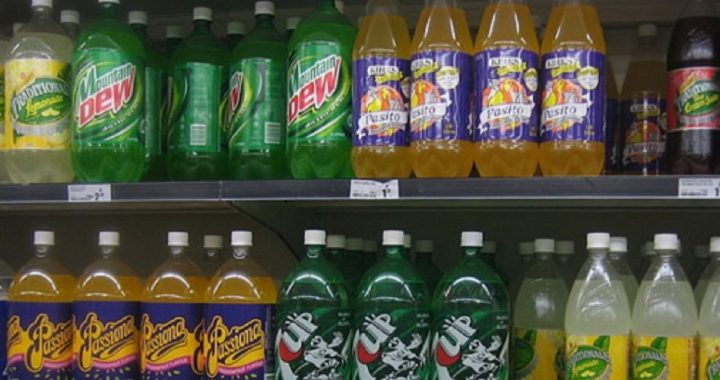
New York Mayor Michael Bloomberg’s super-sized soda ban has just been dealt another blow in court. On Tuesday, a four-judge panel of the New York Supreme Court’s Appellate Division unanimously upheld an earlier decision invalidating the New York City Board of Health’s rule forbidding consumers from purchasing more than 16 ounces of certain sugary drinks in certain establishments.
The regulation, knows as the Portion Cap Rule, was written by Bloomberg’s office and presented to the Board of Health — every member of which was appointed by the mayor — which then proceeded to enact the rule almost verbatim. A coalition of soft-drink makers, labor unions, and restaurant and small-business owners challenged the rule, and one day before it was set to take effect, state Supreme Court Justice Milton Tingling struck it down. Bloomberg appealed that decision, arguing that the rule would “save lives.”
The appellate panel, however, agreed with Tingling’s ruling, finding that the board had exceeded its authority to makes rules protecting public health.
“The Board of Health … has no inherent legislative power,” Justice Dianne Renwick wrote in the court’s opinion. “It derives its power to establish rules and regulations directly and solely from the legislature, in this case, the City Council…. Because the constitution vests legislative power in the legislature, administrative agencies may only effect policy mandated by statute and cannot exercise sweeping power to create whatever rule they deem necessary.”
“Neither the State Legislature nor the City Council has ever promulgated a statute defining a policy with respect to excessive soda consumption,” Renwick observed. In fact, she pointed out, both bodies have attempted to pass legislation targeting sugary drinks but have failed. In addition, before the Portion Cap Rule was adopted, 14 City Council members wrote Bloomberg to ask that it be put to a vote in council but were rebuffed. Even now, with the rule having twice been defeated in court, a Bloomberg spokeswoman told Reuters that the mayor has no intention of trying to enact his rule through the proper channels. “The route that we have gone is through the Board of Health,” she said. Obviously, Bloomberg believes he could never get his ban past the City Council, whose members have to face the electorate, so he has chosen instead to rule by fiat via his handpicked health board.
The Board of Health argued that it has the authority to regulate soft-drink consumption because it is charged with protecting the public from health hazards. The board, however, “does not claim that soda consumption can be classified as such a health hazard,” noted Renwick. “Rather, the hazard arises from the consumption of sugary soda in ‘excess quantity.’” But who is to define “excess quantity” and weigh the benefits of the Portion Cap Rule against its costs? That, said the judges, is a job for the legislature, not the Board of Health.
Given the conflict between the rule and such things as “consumer preferences” and “business financial interests,” argued the panel, the rule should have gone through the legislative process, where such tradeoffs could be debated openly, rather than being forced on the public by unelected bureaucrats:
Indeed, since a basic premise of the ban is that New Yorkers consume excessive quantities of sugary drinks, the Board’s decision to regulate only these drinks requires that any health concerns be weighed against consumer preferences for such drinks. Instead of offering information and letting the consumer decide, the Board’s decision effectively relies upon the behavioral economics concept that consumers are pushed into better behavior when certain choices are made less convenient…. As a result, the Board necessarily concluded, as a threshold matter, that health concerns outweigh the cost of infringing on individual rights to purchase a product that the Board has never categorized as inherently dangerous.
This, Renwick wrote, “is inherently a policy decision” that is “especially suited for legislative determination.”
The judges also found that the Board of Health did not promulgate the Portion Cap Rule strictly out of concern for New Yorkers’ health, though that is the only reason the board is authorized to make rules. The rule “necessarily looks beyond health concerns, in that it manipulates choices to try to change consumer norms,” penned Renwick. Moreover, the rule’s myriad exceptions for such things as alcoholic beverages, milk-based drinks, and grocery and convenience stores prove that the board “necessarily took into account its own non-health policy considerations.”
“Judged by its deeds rather than by its explanations,” Renwick declared, “the Board of Health’s jurisdictional rationale evaporates.”
Thus, the judges ruled, the board “overstepped the boundaries of its lawfully delegated authority” and “violated the state principle of separation of powers,” and the Portion Cap Rule should indeed be invalidated.
They were careful to point out, though, that they were not “express[ing] an opinion on the wisdom of” the rule. They merely stated that the Board of Health had no authority to make such a rule. However, even if passed by duly elected officials, a new soda ban “would trigger another constitutional challenge but would avoid separation of powers issues,” wrote George Washington University law professor Jonathan Turley, who labeled the Portion Cap Rule “the ultimate example of the ‘Nanny state’ where the government dictates the proper lifestyle choices and risks for adults.”
The head nanny, Mayor Bloomberg, isn’t giving up despite a pair of stinging defeats. In a statement, he called the appellate judges’ decision a “temporary setback” and vowed to appeal once more, this time to the Court of Appeals, the highest court in the state. “If the court declines to hear the city’s appeal,” said Reuters, “the case would come to an end.”
It can’t end soon enough for those who seek relief from the nanny state — or for the taxpayers who are stuck with the bills for these endless appeals.



